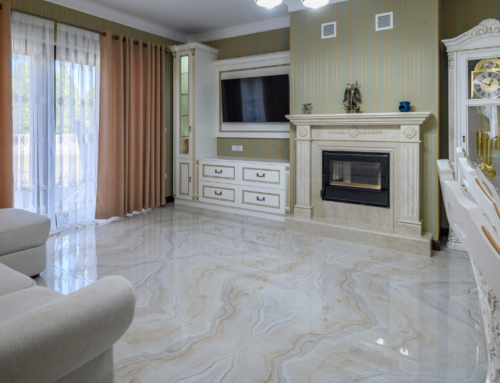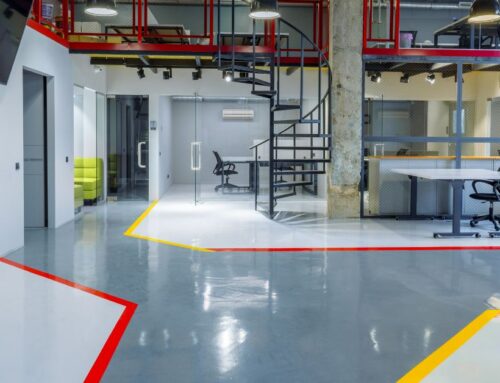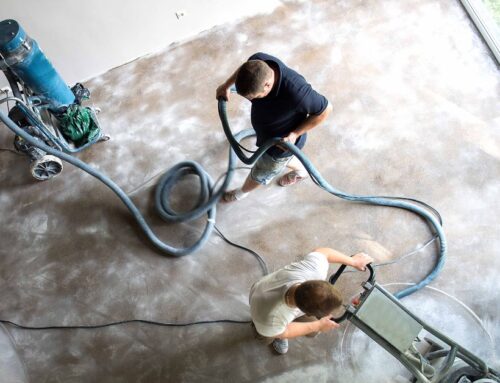Have you ever wondered if there is a difference between commercial and residential concrete? Contractors and construction enthusiasts alike ponder this question as they navigate various projects. So, what sets these two concrete apart? Let’s dive in and find out.
Concrete is a versatile and durable construction material used in a wide range of applications, including both commercial and residential projects. While the fundamental properties of concrete remain the same, there are distinct differences between commercial and residential concrete. Understanding these differences is crucial for ensuring the right choice of material for your next specific project.
In this article, you will know concrete vs residential concrete and their pros and cons, with “Pacheco Custom Masonry” as a trusted commercial concrete company.
Commercial Concrete
Commercial concrete refers to the use of concrete in non-residential or commercial buildings such as office complexes, retail spaces, warehouses and industrial facilities. Some key characteristics include:
Strength and Durability
This material is designed to withstand heavy cables, heavy foot traffic, and various external factors. It is typically designed to have higher compressive strength and durability compared to residential concrete.
Specifications and Codes
Commercial construction projects must comply with specific building codes and regulations. Furthermore, it is designed to meet these requirements, ensuring compliance with structural and safety standards.
Large-Scale Applications
Commercial projects often involve large scale applications of concrete such as expansive floor areas, parking lots, and structural elements. The volume and size of these projects necessitate the use of specialized equipment and techniques.
Pros of Commercial Concrete
Strength and Longevity
It is designed for exceptional strength and durability, making it suitable for heavy-duty applications. As a result, it can withstand high volumes of traffic and heavy loads, ensuring the longevity of the structure.
Safety and Code Compliance
This material meets strict building codes and safety standards, ensuring the structural integrity and safety of the building. Additionally, it offers peace of mind to stakeholders knowing that construction meets industry standards.
Versatility
This concrete can be customized to meet specific project requirements. Likewise, it offers flexibility in design, allowing various finishes, textures and colors to create visually attractive and functional spaces.
Low Maintenance
Once installed, concrete requires minimal maintenance. As if that were not enough, it is resistant to wear and tear, reducing the need for frequent repairs and replacements.
Residential Concrete
Residential concrete is used in the construction of homes, driveways, patios and other residential structures. Here are some notable features of residential concrete:
Aesthetic Appeal
Residential concrete often emphasizes aesthetics as it is visible in areas such as driveways, walkways, outdoors spaces. Decorative options like stamped concrete, exposed aggregate, and colored concrete are popular choices for improving curb appeal.
Scale and Complexity
While residential projects can vary in size and complexity, they typically involve smaller scale applications compared to commercial projects. However, attention to detail and precision are still essential to ensure the quality of the final product.
Customization and Personalization
Residential concrete provides you with the opportunity to personalize your space. From choosing decorative finishes to incorporating unique design, residential concrete allows for creative expression.
Pros of residential Concrete
Aesthetic and curb Appeal
Residential concrete offers a range of decorative options, enabling you to improve the visual appeal of your properties. It can elevate the overall aesthetics of a residential space, making it more inviting and attractive.
Cost-Effective
Residential concrete projects tend to be more cost effective compared to commercial projects.The smaller scale and simple design often result in lower material and labor costs.
Durability and Functionality
Residential concrete provides a durable and long-lasting surface for driveways, patios and other outdoor areas. It can withstand weather conditions, heavy foot traffic and regular use.
“Discover the ionic origin of thermoelectric behavior in geopolymer concrete.”
Comparison and Contrast: Commercial vs residential Concrete
Strength and Durability: How Commercial Concrete Excels
Commercial concrete excels in terms of strength and durability. It is engineered to withstand heavy; loads, high foot traffic and various external factors commonly encountered in commercial settings. With higher compressive strength and greater durability, commercial concrete is specifically designed to meet the demands of large-scale applications and provide long-lasting structural integrity.
Design Flexibility: Residential Concrete Takes the Lead
Residential concrete offers greater design flexibility compared to commercial concrete. In residential settings, aesthetics play a significant role, and homeowners often seek decorative options to improve the visual appeal of their properties. With a wide range of finishes, textures and colors available such as stamped concrete, exposed aggregate and colored concrete, residential concrete allows for creative expression and customization to suit individual preferences.
Cost Considerations: Balancing Commercial and Residential Needs
Cost considerations differ between commercial and residential concrete projects. Commercial projects generally involve larger scale applications, specialized equipment and adherence to specific building codes, making them more expensive. On the other hand, residential concrete projects tend to be smaller in scale, simple in design and thus more cost effective. Balancing the budgetary requirements of commercial and residential projects is crucial to ensure optimal use of resources.
Maintenance Requirements: A closer Look at Both Settings
In terms of maintenance commercial and residential concrete have their own considerations. Commercial concrete, given its exposure to heavy traffic and constant use, may require more frequent maintenance to address deterioration. Regular concrete and repairs are essential to maintain its functionality. Residential concrete while subject to less intense use still requires periodic maintenance to preserve its appearance and durability. However, the maintenance needs of residential concrete are generally less demanding compared to commercial settings, making it more manageable for you.
Pacheco Custom Masonry: Your trusted Commercial Concrete Company
When it comes to commercial and concrete projects, Pacheco Custom Masonry is a reputable and experienced company that specializes in delivering high quality results. With its in-depth knowledge of commercial concrete applications and adherence to industry standards, they provide tailored solutions to meet the unique requirements of each project, ensuring structural integrity and delivering exceptional results that withstand the test of time.
To know more about pacheco Custom Masonry services, must read “What are the benefits of sealing a garage floor?”
Conclusion
Finally, this concrete emphasizes strength, durability, and code compliance, while residential concrete offers customization options and focuses on aesthetic appeal. Pacheco Custom Masonry stands out as a trusted commercial concrete company, offering expertise in delivering top-notch results for commercial projects.
Whether there are large scale commercial developments or personalized residential constructions, Pacheco Custom Masonry is dedicated to providing exceptional craftsmanship and customer satisfaction by considering the unique demand of each setting. As someone once said, “No job is too big”!






Leave A Comment